|
Books Should Be Free Loyal Books Free Public Domain Audiobooks & eBook Downloads |
|
|
Books Should Be Free Loyal Books Free Public Domain Audiobooks & eBook Downloads |
|
Romance Novels |
|---|
|
Book type:
Sort by:
View by:
|
By: Frances E. W. Harper (1825-1911) | |
|---|---|
 Sowing and Reaping
Sowing and Reaping
This novel is subtitled A Temperance Story, which identifies explicitly the focus of the work. Frances Harper is a Christian moralist and uses her writings for didactic purposes. Here she contrast two couples, one, Belle and Paul, who do not drink and whose lives are happier and more productive, and the other, Jeanette and Charles, who lives are destroyed by the demon rum. | |
By: Frances Hodgson Burnett | |
|---|---|
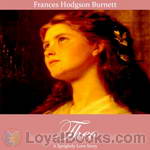 Theo
Theo
It's described as "A SPRIGHTLY LOVE STORY" and it is written by F. H. Burnett, "one of the most charming among American writers!" | |
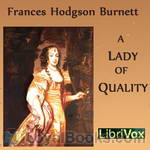 A Lady of Quality
A Lady of Quality
Set in late 1600's England, the story follows the life of a woman living an unconventional life. The loves of her life and all of its ups and downs are included. | |
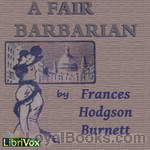 A Fair Barbarian
A Fair Barbarian
The setting is a small English village in the 19th century. When her niece shows up on her doorstep unexpectedly, a quiet spinster finds her life turned upside down. | |
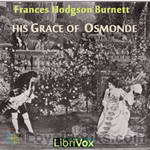 His Grace of Osmonde
His Grace of Osmonde
His Grace of Osmonde, being the portions of that nobleman's life omitted in the relation of his Lady's story presented to the world of fashion under the title of 'A Lady of Quality'Set in late 1600's England, the story follows the life of a woman living an unconventional life. The loves of her life and all of its ups and downs are included. And as above, has more of the story of the Duke who becomes the love of her life. | |
 That Lass O' Lowrie's 1877
That Lass O' Lowrie's 1877
Frances Hodgson Burnett was born and grew up in Manchester, England, and emigrated to the United States with her family at the age of 16. For her first novels, written in Knoxville, Tennessee and published in New York, she drew upon her knowledge of life and speech of the Lancashire working classes. Set in a Lancashire mining town, That Lass o' Lowries is a gritty, and at times brutal, tale of romance across the classes, which stands in stark contrast to her later work. | |
 Miss Crespigny
Miss Crespigny
This is a less known, but not less beautiful, novel by the author of The Secret Garden, A Little Princess, The Lost Prince, Little Lord Fauntleroy, The Shuttle, and many more. There is something different about miss Lysbeth Crespigny. Raised by three maiden aunts and sheltered from the world, she leaves them for the first time in order to explore the world. Yet she is often misunderstood. The world she discovers is more complicated and confusing then she anticipates. She is only 18 when the book starts. However the choices she has to make have consequences which she learns to navigate and become the strong woman she can be. - Summary by Stav Nisser. | |
By: Frances Milton Trollope (1779-1863) | |
|---|---|
 Vicar of Wrexhill
Vicar of Wrexhill
A villainous vicar insinuates himself into the life of a wealthy but foolish widow, ruining the fortunes and happiness of her three children, until they begin to fight back. Published in 1837 by the mother of the better-known Anthony Trollope, this highly readable romance portrays the evangelical movement of the Anglican church in a shocking light that may remind readers of some of the religious abuses of the present day. | |
By: Frances Sheridan | |
|---|---|
 Memoirs of Miss Sidney Bidulph
Memoirs of Miss Sidney Bidulph
Sidney and Cecilia are best childhood friends who are forced to part for 5 years. In that interval, Sidney Bidulph - an undoubtedly good and dutiful woman - writes to her friend about everything: her marriage, her children, her other friendships and, above all, about her great love for Mr. Faulkland. In an amazing and unforgettable way, this book shows us that the road to happiness is not always clear - and that sometimes doing what seems to be right is not really the right thing to do. With Rachel's lovely reading, we see her - Sidney Bidulph - as she was meant to be, and as she really is. | |
By: Francis Brett Young (1884-1954) | |
|---|---|
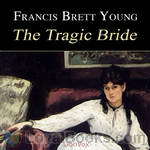 The Tragic Bride
The Tragic Bride
The story centers on Gabrielle Hewish, only and lonely child of Sir Jocelyn Hewish, a loveable lush and owner of the peaceful Roscarna estate nestled in the Irish countryside. In due course, young Gabrielle falls in love with a Navy man whose untimely demise sends her into a depression, and the consequences of which alter her future, culminating in a fascinating and quite unpredictable relationship with Mrs. Payne and her troubled son Arthur. A story of understanding in it’s finest sense and aptly titled, The Tragic Bride is both interesting as a story and telling as a character study. | |
By: Francis Hopkinson Smith (1838-1915) | |
|---|---|
 Little Gray Lady
Little Gray Lady
As every Christmas for the last 20 years, the Little Gray Lady lights a candle in her room and spends the evening alone, thinking of a great mistake she has made so long ago. This year, however, things are to play out differently.. | |
By: Francis William Bourdillon (1844-1912) | |
|---|---|
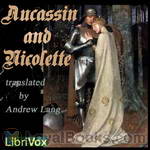 Aucassin and Nicolette.
Aucassin and Nicolette.
Aucassin and Nicolette is a medieval romance written in a combination of prose and verse called a “song-story.” Created probably in the early 13th century by an unknown French author, the work deals with the love between the son of a count and a Saracen slave girl who has been converted to Christianity and adopted by a viscount. Since Aucassin’s father is strongly opposed to their marriage, the two lovers must endure imprisonment, flight, separation in foreign lands, and many other ordeals before their ardent love and fierce determination finally bring them back together... | |
By: Friedrich de La Motte-Fouqué (1777-1843) | |
|---|---|
 Undine
Undine
Undine is a novel by Friedrich de la Motte Fouqué concerning Undine, a water spirit who marries a Knight named Huldebrand in order to gain a soul. It is an early German romance, which has been translated into English and other languages. The novel served as inspiration for two operas in the romantic style by Ernst Theodor Amadeus Hoffmann and Albert Lortzing, respectively, and two ballets: the nineteenth century Ondine and the twentieth century Undine. An edition of the book was illustrated by Arthur Rackham... | |
By: Friedrich Schiller (1759-1805) | |
|---|---|
 Love and Intrigue
Love and Intrigue
Ferdinand is an army major and son of President von Walter, a high-ranking noble in a German duke's court, while Luise Miller is the daughter of a middle-class musician. The couple fall in love with each other, but both their fathers tell them to end their affair. The President instead wants to expand his own influence by marrying Ferdinand to Lady Milford, the duke's mistress, but Ferdinand rebels against his father's plan and tries to persuade Luise to elope with him. | |
By: Fyodor Dostoyevsky (1821-1881) | |
|---|---|
 Landlady
Landlady
Everything changed when Ordynov, a secluded young thinker, stepped out of his old lodgings in search of another corner. The ailing landlord watched from a distance, while the beautiful landlady came close... A tale of love, murder, and sorcery, The Landlady is one of a kind among Fyodor Dostoevsky's works. Written at the age of 26 before he was sent to Siberia, preceded only by The Double and Poor Folk, this novella draws inspiration from Russian folklore as well as stories by Pushkin and Gogol. It anticipates some of the writer's most important ideas to be developed in his later writings. | |
By: Gene Stratton-Porter (1863-1924) | |
|---|---|
 Michael O'Halloran
Michael O'Halloran
The story of a plucky, optimistic newsboy, Michael O’Halloran, who has been orphaned from a young age and asks nothing of the world but to “Be Square!” This is a warm and joyous story of how Michael makes life sunnier for those around him, bringing joy to all who know him. | |
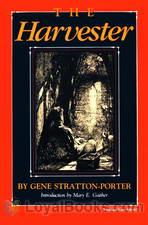 The Harvester
The Harvester
The Harvester is one of Gene Stratton-Porter’s romantic novels which combine a love of nature, high moral ideals and a good plot. This is the story of a young man who lives in the country side with his dog and other animals and grows herbs to sell to medical drug supply houses. One evening, he has a vision of his Dream Girl and this is the story of his search for her and what happens when he finds her. | |
 A Daughter of the Land
A Daughter of the Land
Independent Kate Bates resents the fact that, as the youngest of a large family, she is expected to stay at home and help her parents while her brothers and sisters are free to pursue their desires. When she defies her family and leaves home, she finds that the path to independence is paved with hardships. | |
 Keeper of the Bees
Keeper of the Bees
Threatened with isolation in a sanitorium for tuberculosis, a young soldier escapes and finds himself healing in a paradisal bee-garden by the ocean, tending bees which he knows nothing about, and other unlikely charges who in their circuitous ways, challenge him to discover love. | |
By: George Barr McCutcheon | |
|---|---|
 Graustark
Graustark
The Graustark novels are stories of court intrigue, royal disguise, and romance similar to Anthony Hope’s 1894 novel, The Prisoner of Zenda, and its sequels. They were popular best-sellers at the time they were published and the original editions are still readily available in used book shops. The novels gave their name to a fictional genre called Graustarkian: this genre contains tales of romance and intrigue usually featuring titled characters in small, fictional, Central European countries... | |
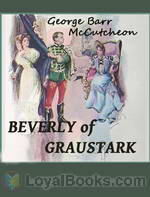 Beverly Of Graustark
Beverly Of Graustark
Beverly Of Graustark is the second book in the Graustark series. Lorry and his wife, the princess, made their home in Washington, but spent a few months of each year in Edelweiss. During the periods spent in Washington and in travel, her affairs in Graustark were in the hands of a capable, austere old diplomat–her uncle, Count Caspar Halfont. Princess Volga reigned as regent over the principality of Axphain. To the south lay the principality of Dawsbergen, ruled by young Prince Dantan, whose half brother, the deposed Prince Gabriel, had been for two years a prisoner in Graustark, the convicted assassin of Prince Lorenz, of Axphain, one time suitor for the hand of Yetive... | |
By: George Bernard Shaw (1856-1950) | |
|---|---|
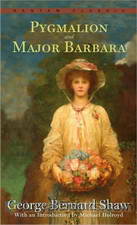 Pygmalion
Pygmalion
If you've watched and loved the delightful musical My Fair Lady, then you'd love to read the wonderful play on which it is based. Pygmalion by George Bernard Shaw is equally engrossing and as full of charm, wit and underlying pathos. First performed on stage in 1912, Pygmalion takes its title from the Greek myth of Pygmalion and Galatea. In the ancient story, a brilliant sculptor, Pygmalion falls in love with one of his own creations, a ravishingly beautiful sculpture whom he names Galatea. He propitiates Aphrodite, who grants his wish that his statue would come to life and that he could marry her... | |
 Widowers' Houses
Widowers' Houses
This is one of three plays Shaw published as Plays Unpleasant in 1898; they were termed "unpleasant" because they were intended, not to entertain their audiences—as traditional Victorian theatre was expected to—but to raise awareness of social problems and to censure exploitation of the laboring class by the unproductive rich. In this play, Dr. Harry Trench becomes disillusioned when he discovers how his fiancee's father, Mr. Sartorius, makes his money. However, it is soon revealed that Trench's own income is far from untainted. | |
 Love Among the Artists
Love Among the Artists
Love Among the Artists was published in the United States in 1900 and in England in 1914, but it was written in 1881. In the ambience of chit-chat and frivolity among members of Victorian polite society a youthful Shaw describes his views on the arts, romantic love and the practicalities of matrimony. Dilettantes, he thinks, can love and settle down to marriage, but artists with real genius are too consumed by their work to fit that pattern. The dominant figure in the novel is Owen Jack, a musical genius, somewhat mad and quite bereft of social graces... | |
By: George Eggleston and Dolores Marbourg | |
|---|---|
 Juggernaut: A Veiled Record
Juggernaut: A Veiled Record
Edgar Braine was consistently successful at all he set out to accomplish. He went through life with goals and worked diligently and with ethical purity in reaching those goals, from becoming editor of the local newspaper on up to his political aspirations. That was how his mother, in her waning years, had advised him to reach his goals, and Edgar was determined to honor her advice. There was one caveat in his mothers advice however, and it is for Edgar to determine exactly what she meant by it. Is success measured by the interactions between business, politics, and marriage? | |
By: George Eliot (1819-1880) | |
|---|---|
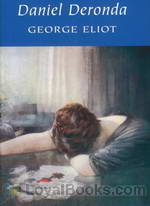 Daniel Deronda
Daniel Deronda
A lovely young woman gambling at a casino in Leubronn, Germany. A young man watches, fascinated from afar. She begins to lose heavily and leaves the casino. Thus opens the last and probably the most controversial of George Eliot's novels. Published in 1876, Daniel Deronda is also the only one in which the great Victorian novelist portrays contemporary society of her own time. There were only a few murmurs when it first came out, but later, they became a full fledged outpouring of resentment against what many readers felt was an extremely controversial stand on Jewish, proto-Zionist and Kabbalistic ideas... | |
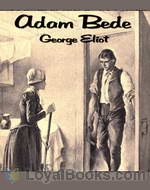 Adam Bede
Adam Bede
A young carpenter falls in love with the village beauty. She, however, has set her sights on a dashing army captain who's the son of the wealthy local squire. Meanwhile, a beautiful and virtuous young woman preacher arrives in the village. What happens to these people and the strange twists and turns that their lives take are described in the rest of the book. Adam Bede was George Eliot's first published novel. Published in 1859, the book has remained a firm favorite with readers and academicians alike and is still taught in many English literature courses all over the world... | |
 Felix Holt, The Radical
Felix Holt, The Radical
"Harold Transome is a landowner who goes against his family's political tradition (much to his mother's distress), while Felix Holt is a sincere radical. The setting of the book, the 1832 parliament election, is used to discuss the social problems of that time. A secondary plot involves Esther Lyon, the stepdaughter of a minister who is the real heiress to the Transome estate, with whom both Harold Transome and Felix Holt fall in love. Esther loves poor Felix Holt, but would she choose a comfortable life with Harold Transome?" | |
By: George Gascoigne (1535-1577) | |
|---|---|
 Adventures of Master F.J.
Adventures of Master F.J.
This story presents through letters, poems and third-person commentary the love affair between a young man named Freeman Jones and a married woman named Elinor, lady of the castle he is visiting in Scotland. Events in the affair are traced from initial attraction through seduction to (somewhat) graphic sexual encounters and their aftermath. (Allegedly based on a real-life scandal, the author, in re-issuing his story two years later, transplanted the action to Italy, renaming the principals Fernando Jeronimi and Leonora.) | |
By: George Gibbs (1870-1942) | |
|---|---|
 Silent Battle
Silent Battle
This offering from George Gibbs, follows the developing romance between lawyer Tom Gallatin, trying to beat his alcoholism, and debutante Jane Loring. It begins with Tom getting lost while on a hunting trip in the Canadian wilderness, where he has gone in hopes of rehabilitating himself. Attempting to find his way back, he encounters Jane Loring, also lost. Each is attracted to the other, but after a few nips from Jane's flask, Tom steps over the line with her. The seriousness of his actions, as well as his feelings toward Jane, leads him to overcome his addiction... | |
 Golden Bough
Golden Bough
The eyes of the Légionnaire, now grown accustomed to the glow of the light, made sure that the figure had not moved, nor was aware of his silent and furtive approach. Two plans of action suggested themselves, one to move behind the foliage to the right and intercept the monk with the lantern should he attempt to flee toward the lights of the house nearby, the other to risk all in a frank statement, a plea for charity and asylum. (A selection from Chapter 1. ) | |
 Love of Monsieur
Love of Monsieur
A charming rogue, a stolen birthright, unrequited love, mutiny on the high seas, with a backdrop of 17th century England and the Spanish Main, make for another historical romance from George Gibbs. - Summary by Donald Cummings | |